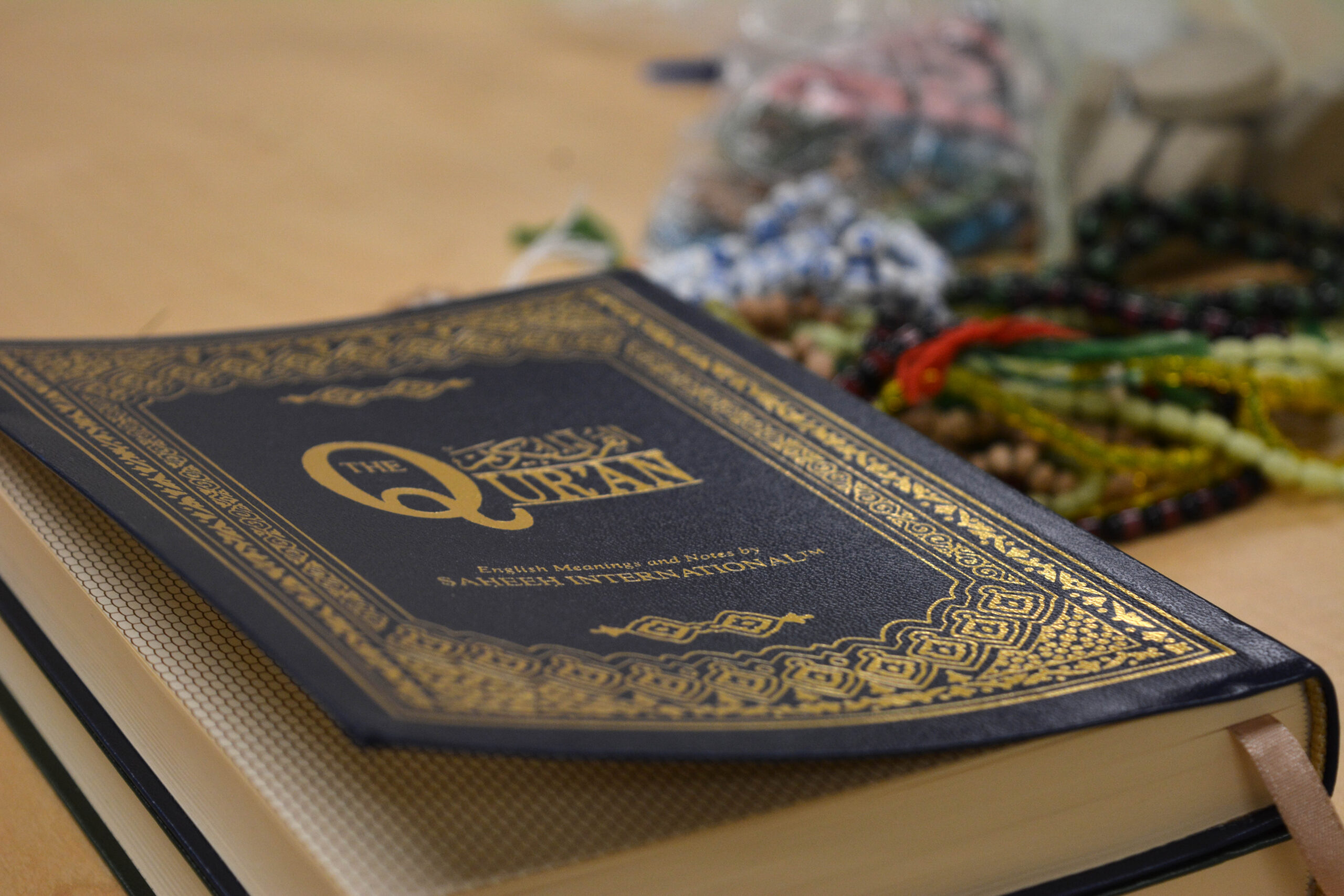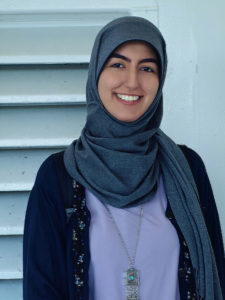Supporting students of faith at UBC
UBC has opened a temporary prayer room to give Muslim students an accessible space on the west side of campus to practice their faith during the high-pressure exam period.

UBC has opened a temporary prayer room to give Muslim students an accessible space on the west side of campus to practice their faith during the high-pressure exam period.
While Muslim students have access to a 24-hour prayer room in Brock Hall Annex, as well as the Marine Drive Residence Ballroom that is used for Friday prayers, UBC’s Equity & Inclusion Office was asked to provide additional prayer space during the exam period.

The temporary prayer room, located in the West Mall Swing Space, received positive feedback when it ran as a pilot project during the fall exam period. It was re-opened last week, in response to requests from students, and will remain open weekdays, 5 am to 10:30 pm, until April 26. The Equity & Inclusion Office continues to work with Muslim student groups to find a solution to the need for prayer space on the campus.
“We’re grateful to UBC for providing space and a great room that works for prayer,” says Tuqa Al-Shakarchi, a second-year dental hygiene student and president of the AMS Thaqalayn Muslim Association. “We worked with UBC’s Equity & Inclusion Office, and they helped advocate for us to find a prayer space. We hope that this will be a stepping stone for a more permanent space.”
As research increasingly supports a link between wellness and spirituality, the prayer space is one way in which UBC is striving to support the spiritual needs of a diverse population of students, faculty and staff.
“We want students to feel a sense of connection and belonging,” says Patty Hambler, UBC director of health promotion and education. “And for some people, the community of faith on campus is their main point of connection.”
UBC does not have data on students’ religious affiliation, but the number of AMS faith-based clubs is an indication of how important religion and spirituality are for many UBC students. (The most recent Undergraduate Experience Survey included a question on religious or spiritual affiliation, but the data is not yet available.)
There are currently 25 faith-based societies and associations at the AMS, ranging from the Chinese Christian Fellowship and the Jewish Students Association to the Campus Association for Bahá’í Studies and the Zen Sangha club.
In addition to the clubs, students of faith can also connect with one of 14 university chaplains at the University Multi-Faith Chaplains Association (UMCA).
“We do lots of referrals to counseling, but if students are looking for encouragement, for affirmation, to be able to end a conversation with prayer is really affirming to students who come from a faith perspective,” says coordinating chaplain Craig O’Brien, a Baptist pastor.
Operating independent of the university, the UMCA has a memorandum of understanding with UBC to offer a variety of services on campus. Recently, its office moved from Brock Hall to a more visible public space in the Life Building.
“As a university committed to inclusion and well-being, it’s important that we consider and embrace this part of people’s identities and self,” says Tracy Wideman, director of partnerships and organizational strategy in the UBC Equity & Inclusion Office. “For some campus community members, spirituality is deeply tied with their sense of well-being and belonging, and it can also be such an immense resource in times of difficulty and crisis.”
Students surveyed on the prayer space when it was opened last fall unanimously agreed that being able to practice their religion on campus contributed to a positive sense of well-being.
“People feel a sense of security knowing that there’s space like this and that UBC cares about their well-being and spirituality,” says Ahsan Sahibzada, a fourth-year undergraduate student of economics and co-op student at the Equity & Inclusion Office, who conducted the survey and supported the development of the prayer space.
Adds Al-Shakarchi, “I like to imagine prayer as my refuge from the world. When I put my forehead down, it’s like speaking to a friend and letting the burdens in my life go. It’s a time to reconnect with yourself and feel grounded again.”



